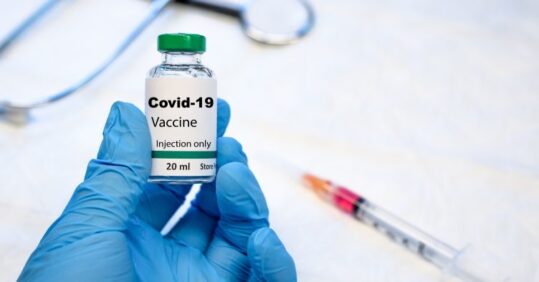Practices help hit Covid vaccination target

Practices helped the UK hit its Covid-19 vaccination target of 15 million jabs a day early yesterday – as NHS England tells surgeries they should identify patients with a severe learning disability, who are eligible for the jab, based on ‘clinical discretion’.
Clinicians have also been encouraged ‘to take a similar approach’ with identifying which patients with severe mental illness should be given the jab, by working with secondary care mental health services, said NHS England.
Health secretary Matt Hancock has also confirmed all adults aged 50 and above should be offered the Covid vaccination by the end of April. Over 65s are being invited for innoculation from this week.
Eighty per cent of learning disability deaths in the week to 22 January this year were linked to Covid-19, compared to just 45% in the general population, Office for National Statistics figures have revealed. Leaders in the sector told Nursing in Practice people with learning disabilities should be prioritised for the vaccine.
Children with severe neuro-disabilities who tend to get recurrent respiratory tract infections – and who ‘frequently’ spend time in specialised residential care settings – should only be offered the Pfizer jab, and if they are aged 12 years or over, it also said.
Meanwhile, NHE England has clarified the criteria for inviting patients with asthma as part of cohort six should be anyone who has ever had an emergency asthma admission, or those who have an asthma diagnosis and have had three prescriptions for oral steroids over a three-month period.
Related Article: New preceptorship package for social care nurses
The latest NHS England advice came in a letter sent over the weekend, which also said practices will be paid an additional £10 supplement for each Covid vaccination given in a residential setting – such as care homes for people with learning disabilities or mental health problems, or hostels for homeless people – on top of the £12.58 item-of-service fee.
Laying out how practices should help to assess which patients with a learning disability fall into the priority six cohort, it said: ‘JCVI determined that those with severe and profound learning disability are in cohort 6.
‘GPs can use GP Learning Disability Registers and SNOMED codes (which describe the impact of learning disability although there is variation in how these are applied) to help identify this group.
‘We recognise that there may still be people who are not on these registers and the NHS needs to make an extra effort to put this right. Practices should use clinical discretion to ensure the right people who meet the severe and profound learning disability definition are on the register.’
The letter added: ‘JCVI also determined that those with schizophrenia or bipolar disorder, or any mental illness that causes severe functional impairment are within cohort 6, and we would encourage GPs to take a similar approach for this group of people, to that being proposed for learning disability, working in partnership with secondary care mental health services and VCS partners to ensure appropriate outreach mechanisms are in place.’
NHS England said the majority of children should not be vaccinated
at this time.
However a small number – around 1,500-2,000 – with ‘severe neuro-disabilities, who tend to get recurrent respiratory tract infections and who frequently spend time in specialised residential care settings’ should be given the Pfizer jab at GP-led or hospital hub sites.
It reiterated that while the Oxford vaccine is only authorised for use in the over 18s, the Pfizer vaccine is licensed for over 16s.
Practices should prescribe the Pfizer Covid vaccine off licence for children over the age of 12, following advice from the patient’s paediatrician, but those under 12 should not be called for vaccination, it reiterated.
Related Article: Applications to study nursing in England at ‘new low’
NHS England added that Covid vaccines ‘should not be given to people outside of cohorts one to six’ – seemingly in contrast to previous advice in which it said practices could offer Covid jabs outside the eligible priority cohorts if there is a ‘risk’ of vaccine wastage.
It reiterated that PCN sites are ‘encouraged’ to have reserve lists of patients for last-minute vaccination but said these should only include those from eligible cohorts.
The Prime Minister set out the ambition to offer the vaccine to the first four cohorts – around 15 million patients – by mid-February when announcing the start of the current national lockdown in January.
Yesterday he announced that the UK has now vaccinated more than the target number of people – reaching its 15 February goal a day early.
Boris Johnson said: ‘In England, I can tell you we have now offered jabs to everyone in the first four priority groups – the people most likely to be seriously ill from coronavirus, hitting the first target that we set ourselves.’
Health secretary Matt Hancock added: ‘In less than 10 weeks we’ve jabbed over 15 million people across the UK. That’s one in every four adults now starting to receive protection from this dreadful disease.’
Speaking on ITV’s Good Morning Britain today, Mr Hancock confirmed the ‘next phase’ of the vaccine rollout aims to offer a first dose to the remaining priority cohorts – all those aged 50 and above – by the end of April.
Related Article: Paul Rees appointed as permanent NMC chief executive and registrar
He said: ‘The next phase is that we want to offer the jab to everybody in groups one to nine by the end of April.
‘We’ve got the supplies, we think, to be able to do that and to start the second jabs that will start in earnest next month.’
Last month, NHS England chief Sir Simon Stevens pledged that patients due their second Covid vaccine dose will be prioritised for existing supply within the 12-week window.

See how our symptom tool can help you make better sense of patient presentations
Click here to search a symptom




